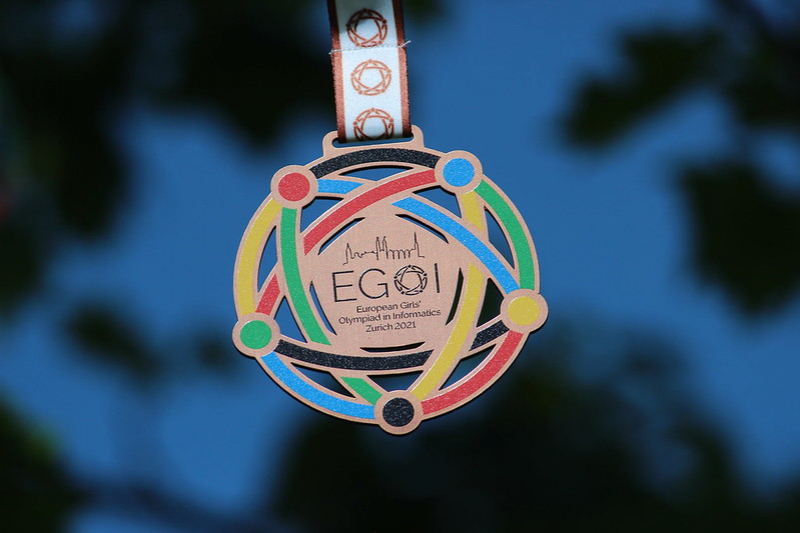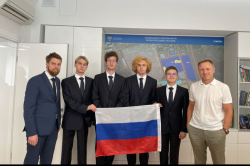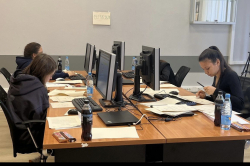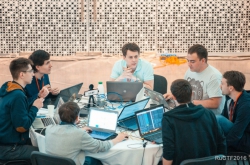The European Girls' Olympiad in Informatics (EGOI) is a new programming competition for young women under the age of 20. The first competition took place in Zürich, Switzerland, and was organized by the committee of the Swiss Olympiad in Informatics. In the following years, the competition will be hosted by different countries.
The olympiad aims to support young women interested in computer science and increase their involvement in IT. Globally, there is a significant gender gap among IT specialists: as noted by the organizers, women made up only 10% of the participants of the Swiss Olympiad in Informatics.
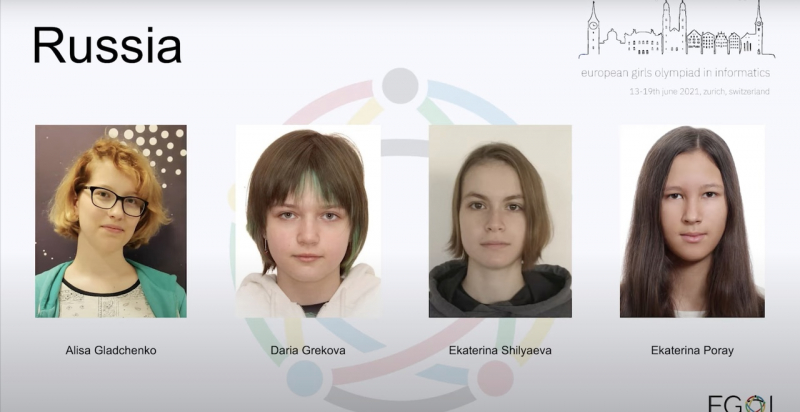
The winners of EGOI 2021. Credit: egoi.ch
Similarly to the International Olympiad in Informatics, the competition consisted of two stages. Each country was represented by a team of four school students and two coaches. In total, the competition brought together 156 young women from 39 countries, including the USA, Brazil, Japan, and Canada. The Russian team participated in the olympiad remotely from the Sirius Educational Center, where its members are taking a specialized course. The team was headed by Andrey Stankevich, an associate professor at ITMO’s Faculty of Information Technologies and Programming and the coach of ICPC-winning teams, as well as Elena Andreeva, the head of the Department of Informatics at Kolmogorov Boarding School of Lomonosov Moscow State University.
The team was formed based on the results of the final round of the National Olympiad in Informatics. Its members have for a long time demonstrated outstanding results in computer science and have been studying at Sirius for several years.
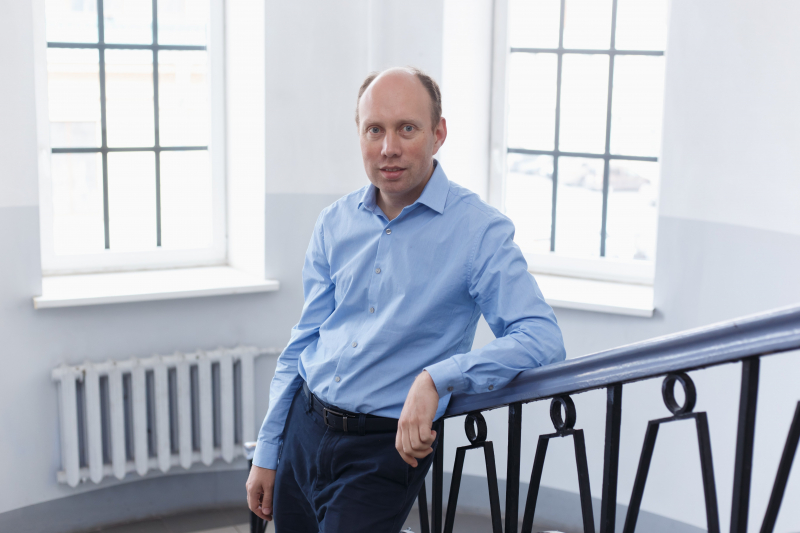
Andrey Stankevich
As noted by Andrey Stankevich, the team hasn't trained specifically for the olympiad for several reasons, one being that it was held for the first time. Apart from the Sirius programs, the students studied informatics with their own tutors.
“We knew we had a strong team. The competition was tough, but our girls managed to achieve, perhaps, the best possible results. We couldn’t wish for more. They won four gold medals, Ekaterina Shilyaeva and Alisa Gladchenko ranked first, and Daria Grekova and Ekaterina Poray scored the second-highest number of points. We’re all very proud of them,” comments Andrey Stankevich.
Alisa Gladchenko grew up in Yekaterinburg, studied at the Specialized Educational and Scientific Center of Ural Federal University, and got into the Center for Teaching Excellence in Moscow. Now, she is about to finish school and plans to pursue her career in IT. Ekaterina Shilyaeva studies at the Physics and Mathematics Lyceum No. 31 in Chelyabinsk. Ekaterina Poray goes to the Letovo School in Moscow, and the youngest participant, Daria Grekova, is a seventh-grade student at School No. 2007 in Moscow.
